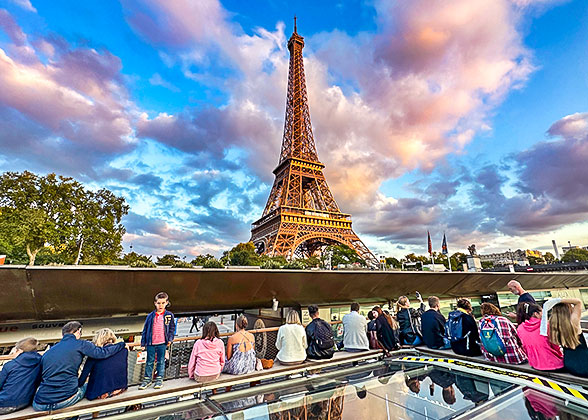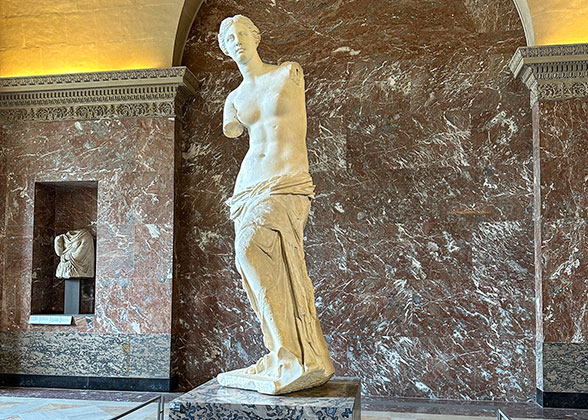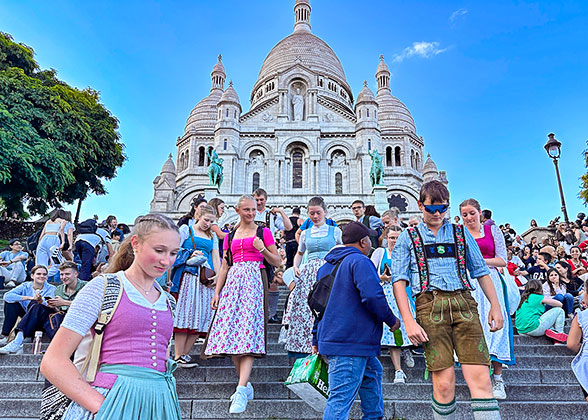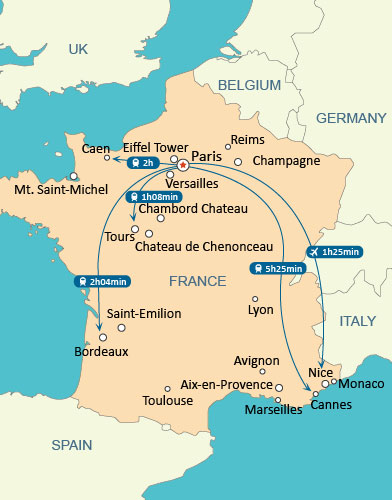Insider Tips for Traveling in France
France, the most romantic country in the world, is always a dream destination for travelers. However, it may greatly surprise you that like the charming scenery of France, thieves there are also famous. According to the data analysis, Paris, Rome, and Barcelona are the top three European cities with the high pickpocket rates. Due to the serious pickpocketing problem in Paris, the voice broadcasts in subways are also in different languages of French, English, Chinese, and Japanese, reminding passengers to take good care of their personal belongings. Especially, when you hear that they repeat several times to remind, it is certain thieves are somewhere around.
Traveling in France, we kindly remind you to pay more attention to any crowded places in popular attractions, transportation hubs, and commercial streets. The moving crowds will make pickpockets easier and invisible. Here we would like to share with you some theft prevention and safety tips:
Travel is always a wonderful thing. We hope you will enjoy your time in France!
Traveling in France, we kindly remind you to pay more attention to any crowded places in popular attractions, transportation hubs, and commercial streets. The moving crowds will make pickpockets easier and invisible. Here we would like to share with you some theft prevention and safety tips:
● Avoid carrying too much cash and valuables. Keep them in your hotel safe. Don’t take passport with you unless necessary. Better to use photocopy.
● Refuse anyone who asks you to conduct a survey or sign a petition, and keep away from the ones who would give you a free bracelet. These are all scams. Some are young ladies and some are children.
● Better to carry a low-profile canvas bag or waist bag, or wear backpack on the front. Keep important items like cash, credit card separate, close to your body or in the compartment of the bag.
● Recommend to buy an anti-fall cross-body rope for your phone. Hold your bag and phone well the moment you get on a bus or metro, and don’t stand by the door.
● Always keep your belongings in sight in open-air cafés or restaurants.
Travel is always a wonderful thing. We hope you will enjoy your time in France!








 3-5 Days
3-5 Days